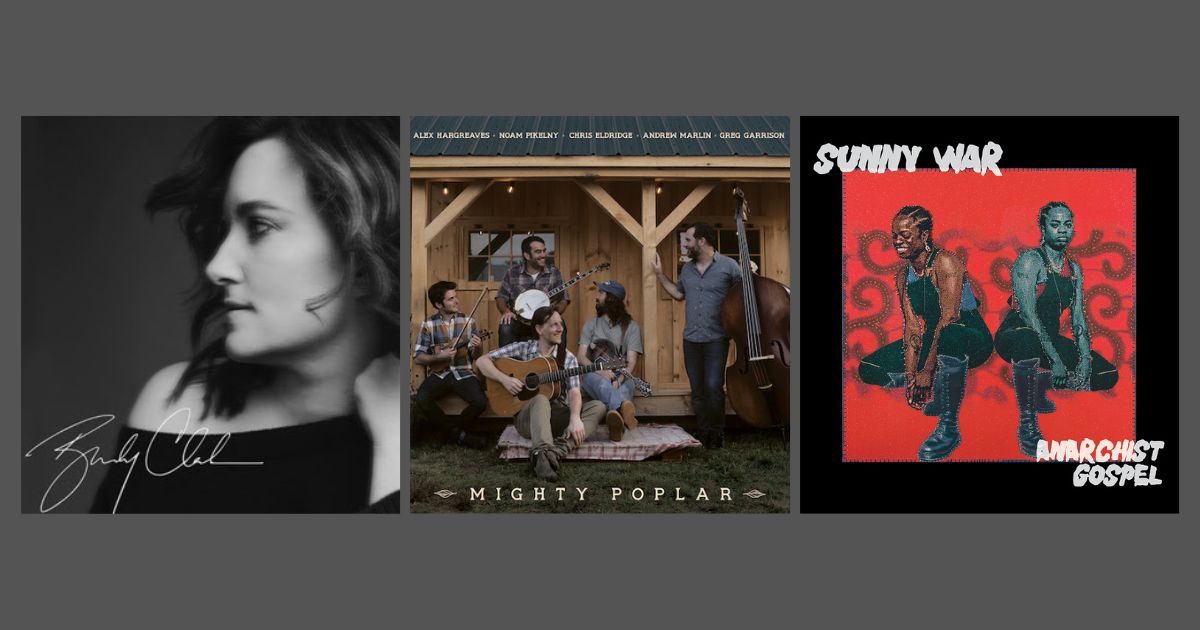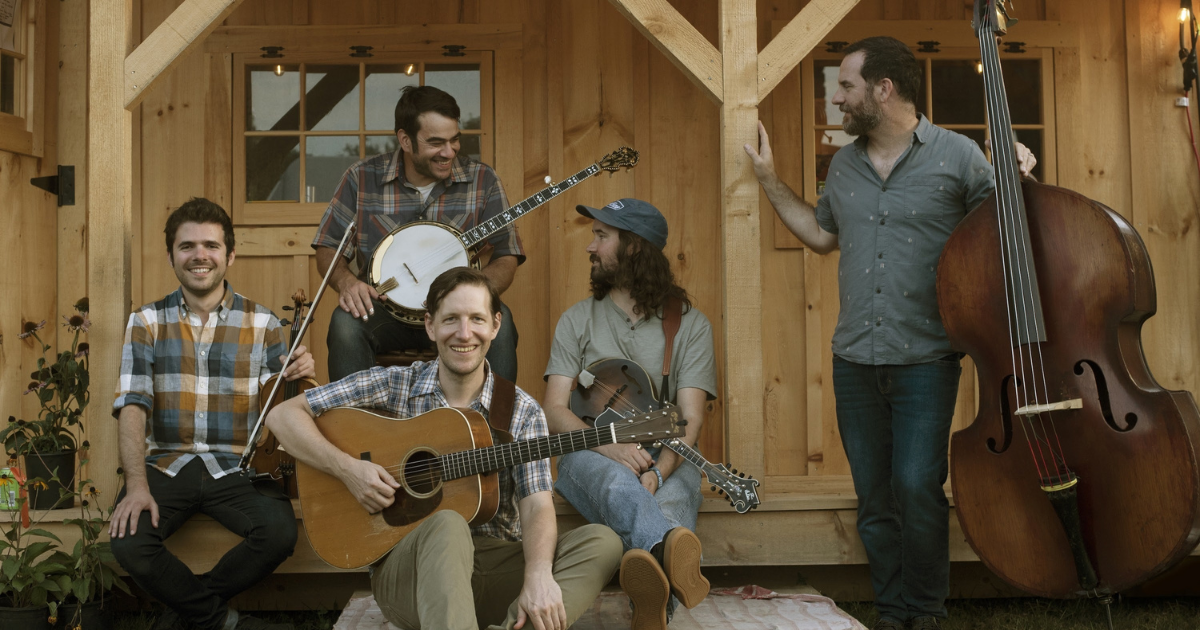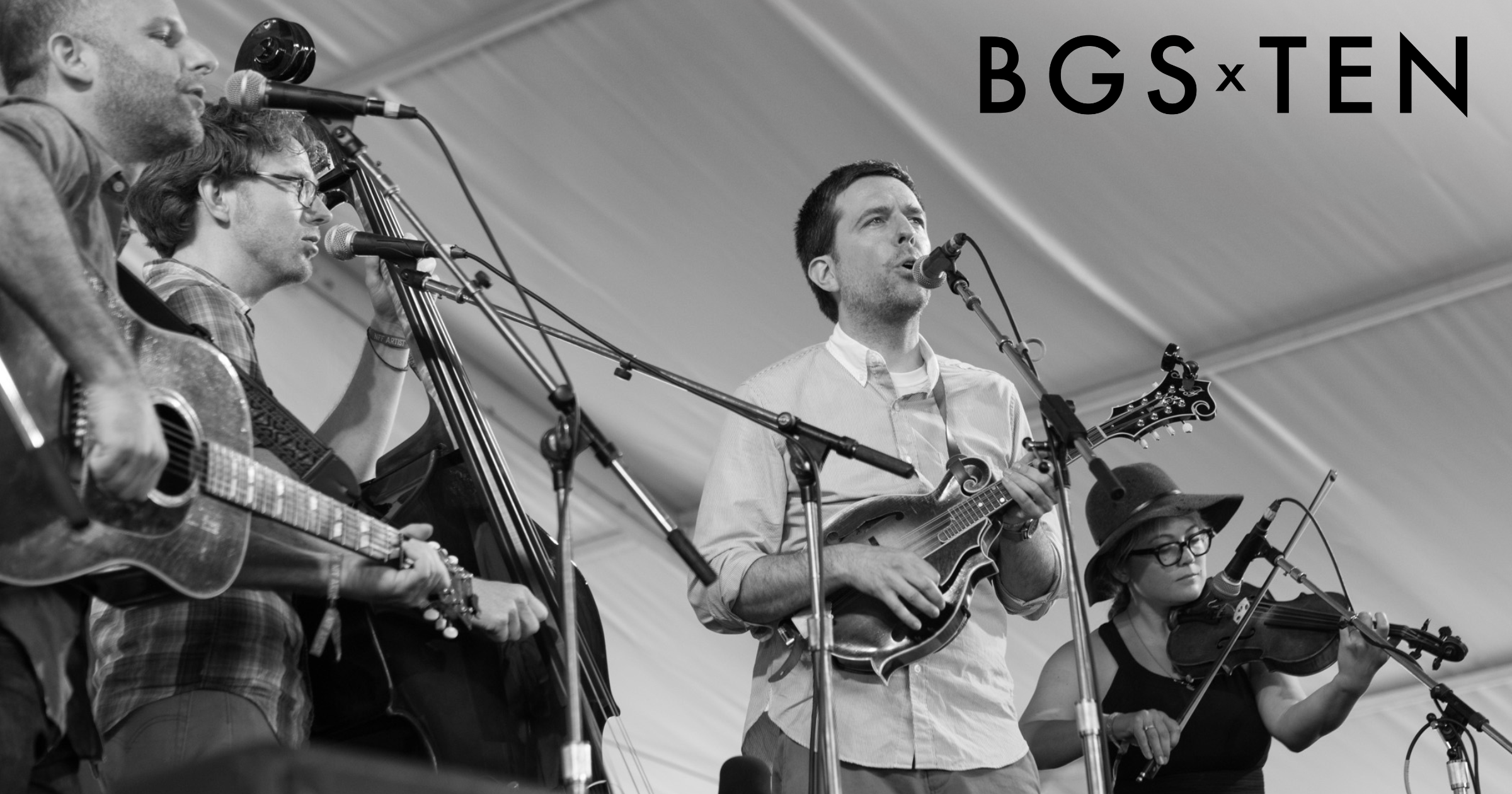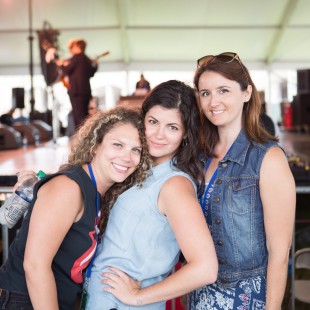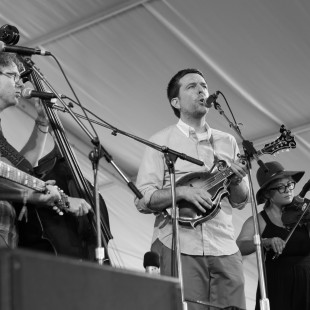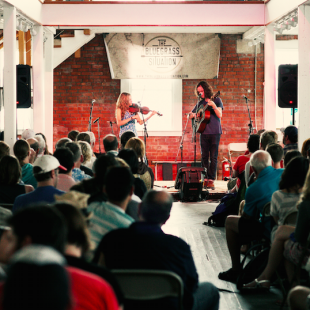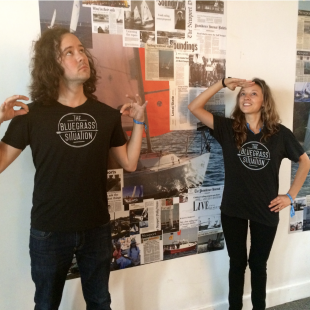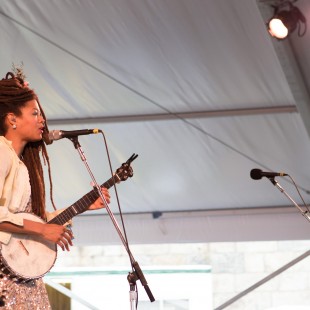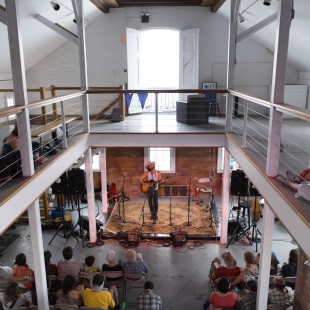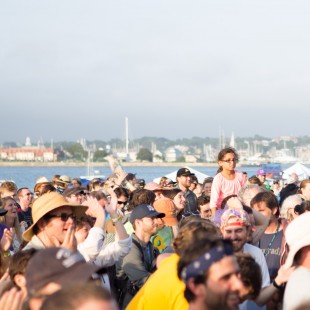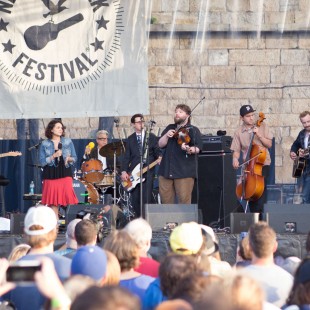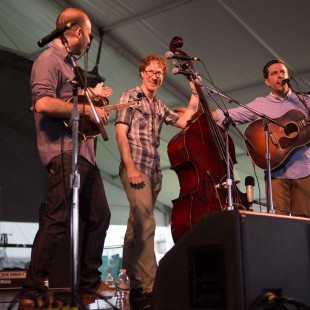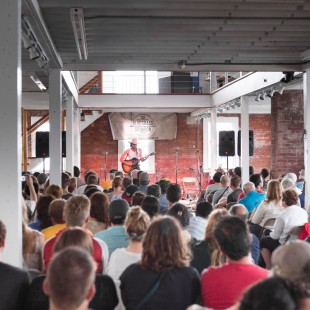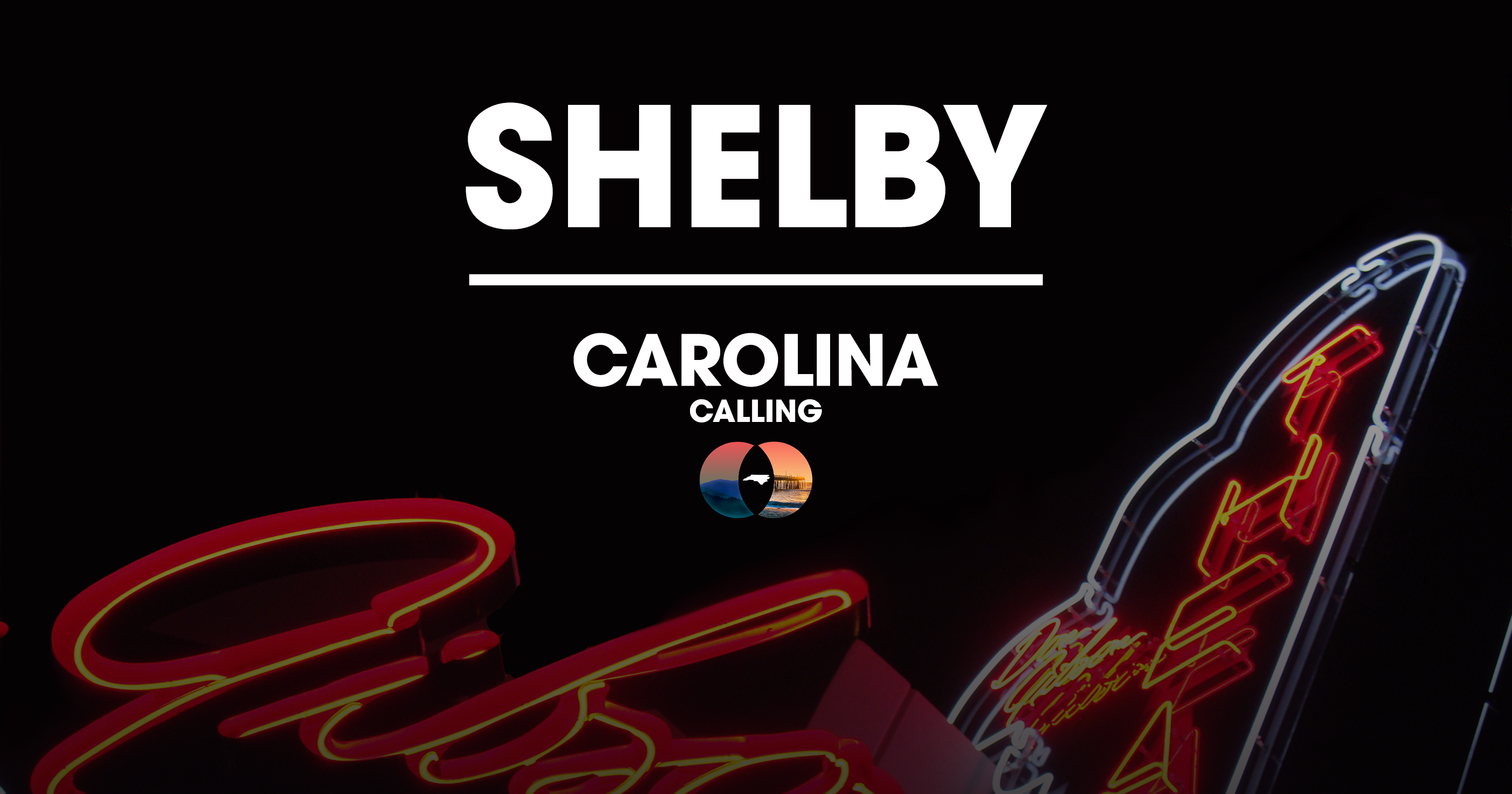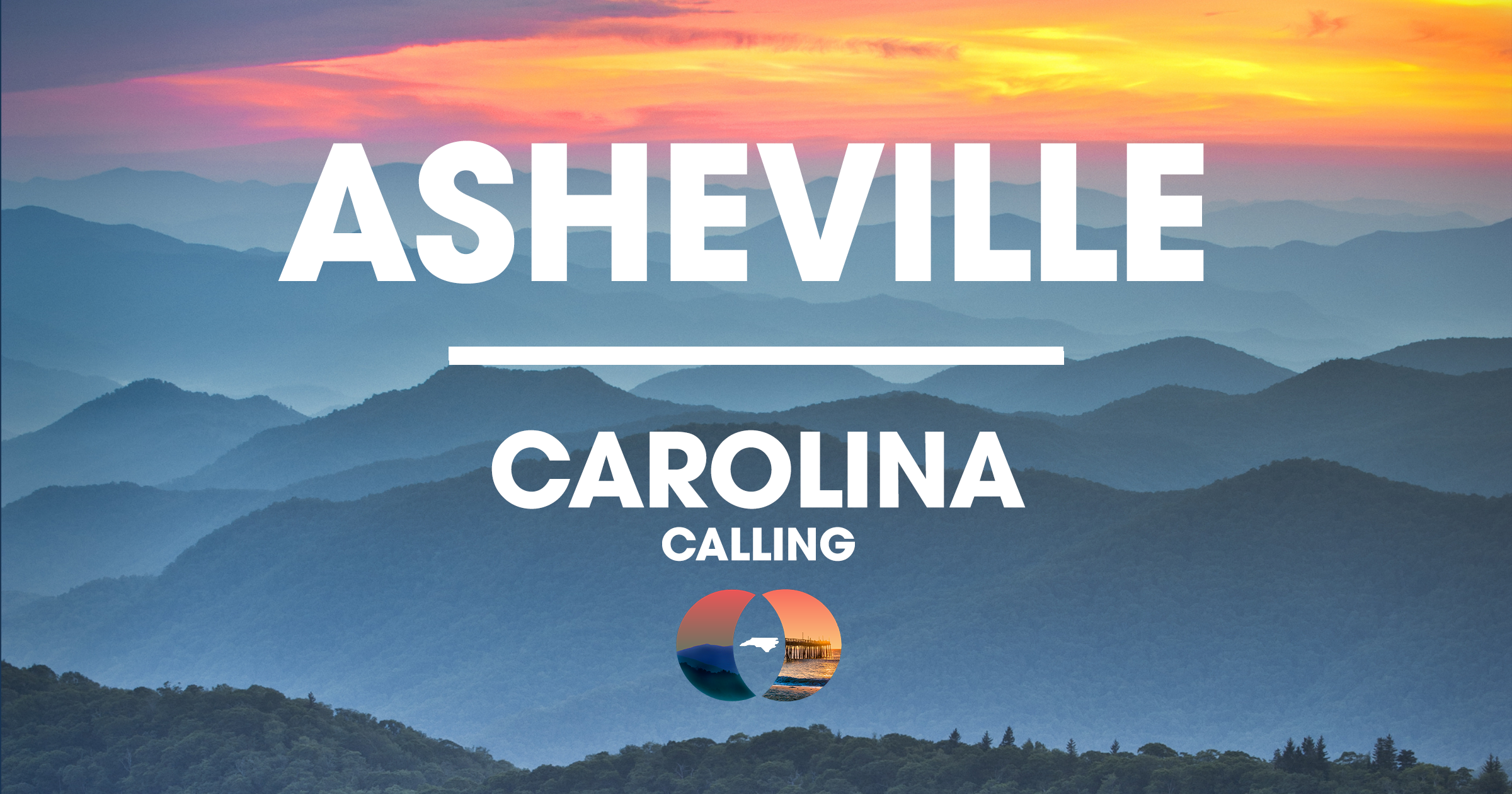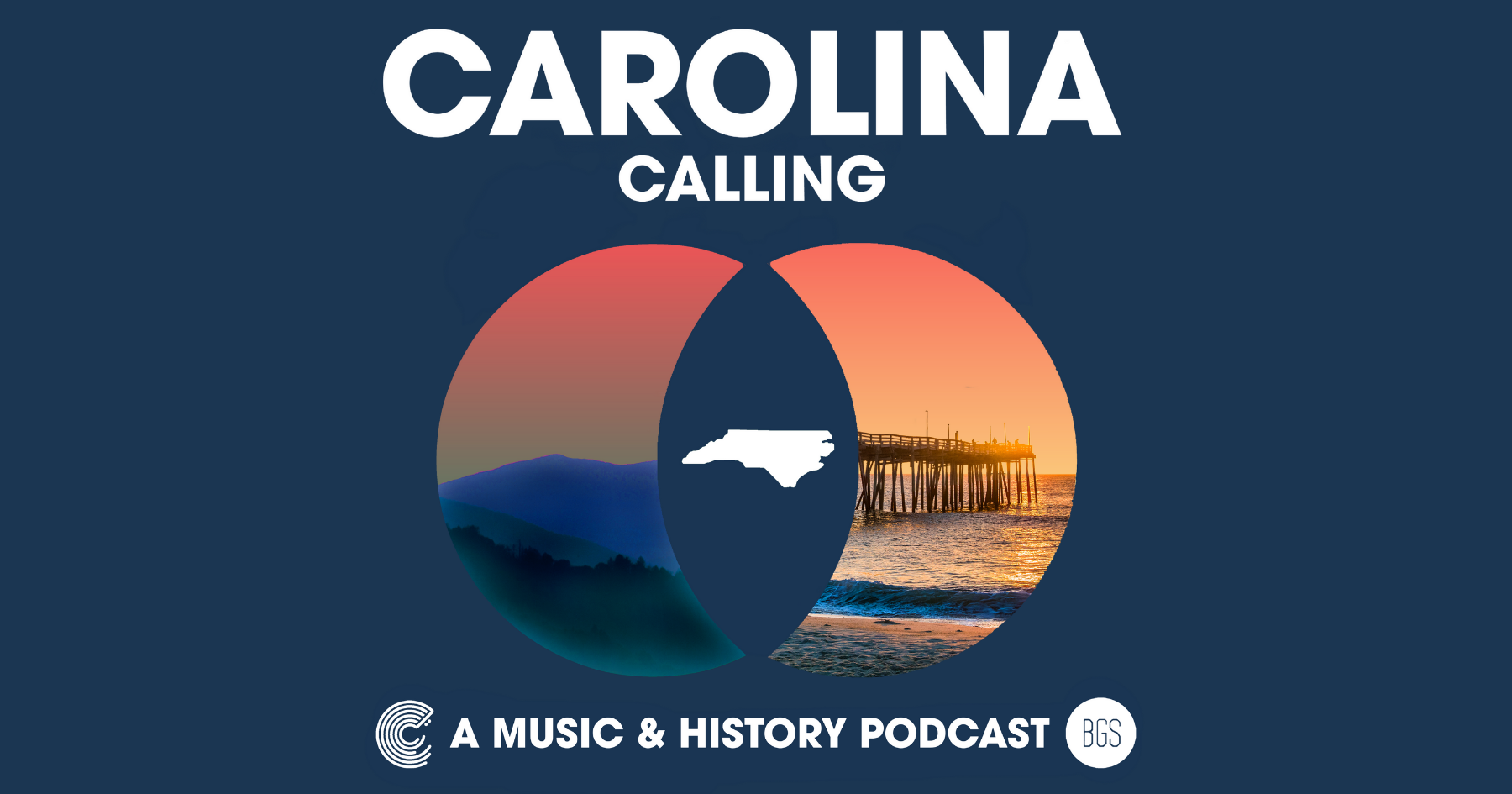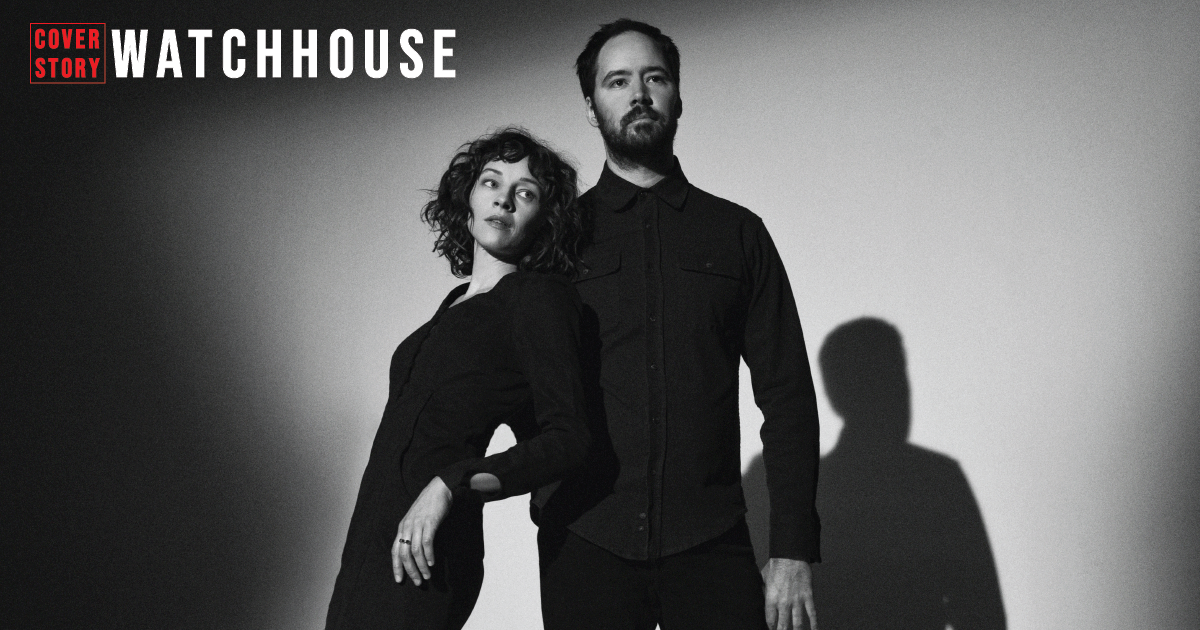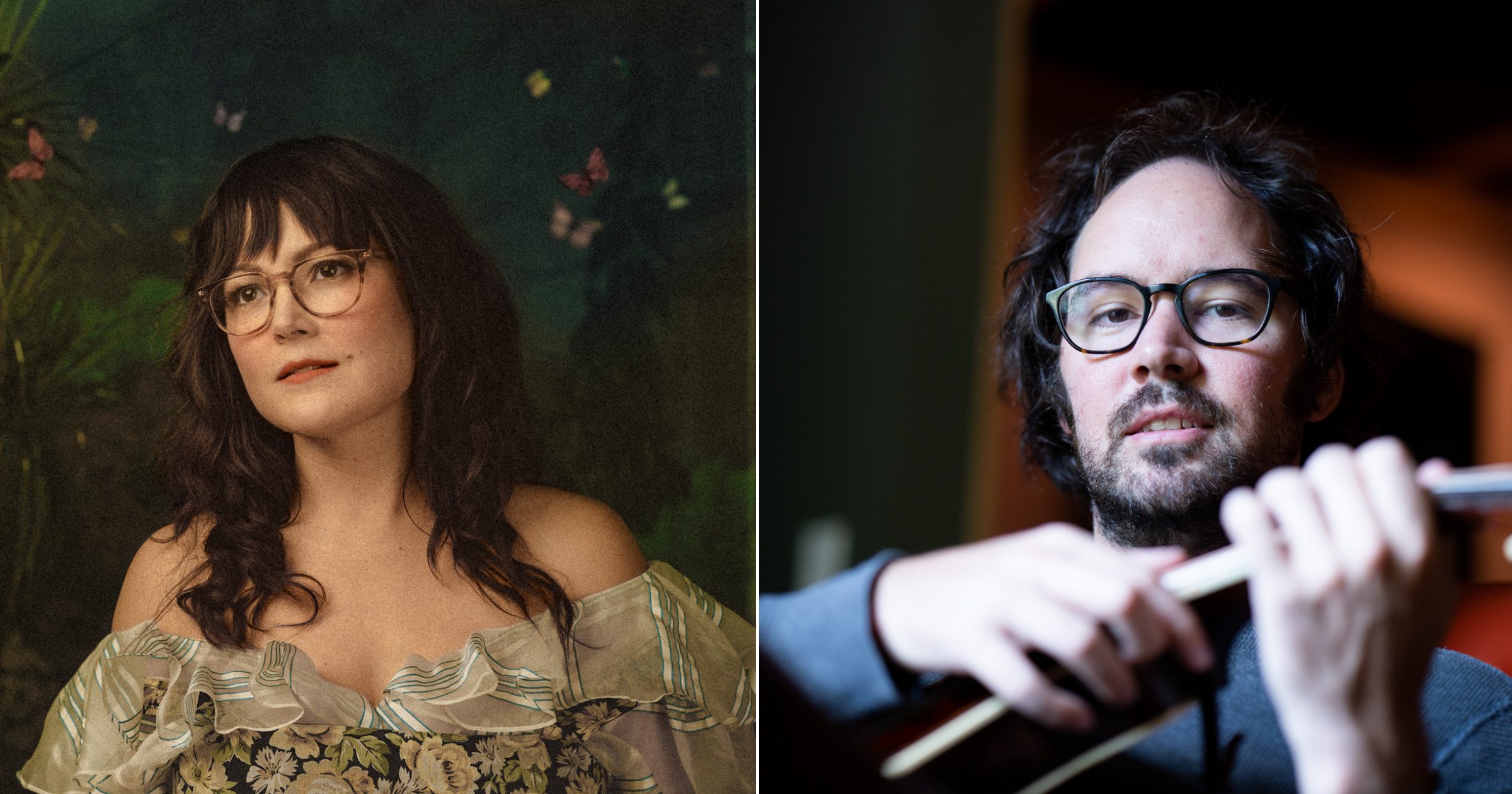Somehow, it’s July and more than half the year has already blown by! In many ways it feels like 2023 is still brand new, despite the calendar saying otherwise and the overabundance of amazing music that has soundtracked the past (nearly) seven months. With many more albums and songs yet to come, we wanted to reflect on the music that has stuck with us and become new favorites of ours since January. It’s a stout list – if we do say so ourselves.
We want to hear from you, too! What albums, songs, and artists have been the underscoring of your 2023? Who’s missing from our list?
(Editor’s Note: Scroll to find our complete BGS Class of 2023 playlist, which is updated every week.)
Rachel Baiman, Common Nation of Sorrow
Fiddler, songwriter, and activist Rachel Baiman has been a part of the BGS family for quite a while now, but recently she joined the ranks of our contributors, as well. (See her writings here.) Her new album, Common Nation of Sorrow, has been a standout for the entire team since it arrived in late March. Though she’s always helmed her creative and musical projects, in many capacities, this record marks the first time she’s been the sole producer on one of her own releases. Her fingerprints are indelible and striking; challenging and convicting. It’s introspective, but expansive.
boygenius, the record
An album so nearly perfect we just have to include it, even though some may believe its connections to roots music are tenuous at best. (We disagree, of course– and wrote an entire list of folk bands for boygenius fans to prove our point.) Julien Baker, Phoebe Bridgers, and Lucy Dacus somehow, against the odds, rise above the simple sum of their parts while reminding of former folk supergroups like Trio (that is, Dolly, Linda, and Emmylou) and Crosby, Stills, Nash, and Young.
Caitlin Canty, Quiet Flame
With its acoustic aesthetic and simple, string band underpinnings, Caitlin Canty’s Quiet Flame is a surprise superlative among bluegrass records released in 2023. Her past albums aligning more with folk, Americana, and singer-songwriter traditions, Quiet Flame was produced by Chris Eldridge and though the production values were quite intentional, the bluegrass result was more a happy byproduct than a deliberate destination. Filmmaker and playwright Noah Altshuler spoke to Canty about the project for a recent feature.
Brandy Clark, Brandy Clark
The BGS team has been fans of country singer-songwriter Brandy Clark for quite some time, so it’s more than a little bit enjoyable to watch as more and more listeners and fans discover Clark. And they have so many pathways to find her, whether through her hit, Tony Award-winning Broadway musical, Shucked, her collaboration with Brandi Carlile – who produced the new, self-titled album – or her many charting hit songs. There’s a point of view on Brandy Clark that we never knew we missed before, a maturity that she never lacked, but she has certainly distilled. It shines in its many spotlights. (Watch for a feature on Clark coming soon to BGS.)
Michael Cleveland, Lovin’ of the Game
Michael Cleveland has won IBMA’s Fiddle Player of the Year award more times than any other fiddler in the organization’s history. His obvious adoration for the instrument – and the life it has led him to – is front and center on his latest album, Lovin’ of the Game. Though he’s collaborated with virtuosos like Chris Thile, Béla Fleck, Billy Strings, and many more over the past handful of years, his perspective remains markedly down-to-earth. As is on display in our Artist of the Month interview from March.
Cat Clyde, Down Rounder
In mid-February, we premiered the music video for the lead single off Canadian alt-folk singer-songwriter Cat Clyde’s album, Down Rounder, and this collection has stuck with us since. For those of us with an affinity for a good red-dirt or red-rock hike, and for western, nomadic, cowboi (that is, all-gendered cowboys) aesthetics – since long before the recent rise of yeehaw culture – this album will provide such perfect daydream scoring. It’s ideal music for journeys internal as well as external.
Iris DeMent, Workin’ On A World
An album of hope – but zero toxic positivity. Iris DeMent knows how it feels to be burnt out, bedraggled, exasperated, defeated. But hope is a radical act and, in those dark moments where hope seems so ethereal and distant, existence is a radical act. The songs of Workin’ On A World never feel preachy or condescending, even while they remind of weeknight church – all-denominational, of course – and raising voices together in the face of oppression and fascism. DeMent isn’t just workin’ on a world, she’s imagining one, too. It’s our job to bring it to fruition, even if we never see it.
Amanda Fields, What, When and Without
Amanda Fields’ voice is impossibly tender, but do not let your guard down or it will bite you just the same. Especially when delivering a bittersweet, southwest Virginia-tinged lyric equally at home played by a bluegrass band or, like on What, When and Without, backed by a vibey, homespun, alt-country sound bed. For a voice and perspective as traditional as her’s, Fields still finds endless new ground to break and lines to color outside of. Her collaboration with guitarist and producer Megan McCormick (who has new solo music coming this year, as well) finds Fields’ musical output climbing to even higher levels of realization, innovation, and professionalism.
Ashby Frank, Leaving Is Believing
Mandolinist, singer, and songwriter Ashby Frank is in the running for IBMA’s Best New Artist award this year, and while reaching the second ballot in this category is certainly a well-deserved recognition, it’s a bit… inaccurate! Frank is not exactly a “newcomer,” as he has been a near permanent fixture in bluegrass, country, and Nashville for the greater part of two decades, performing with outfits like the Likely Culprits, the infamous Darrell Brothers, Special Consensus, Mountain Heart, John Cowan, and so many more. He’s even subbed regularly with the Earls of Leicester – and he’s a hit bluegrass songwriter, too, with charting cuts by Junior Sisk, Dale Ann Bradley, and more. His emerging solo career is where he’s truly hitting his stride, though, and in real time, with this outstanding “debut” on Mountain Home Music.
Brittany Haas & Natalie Haas, HAAS
Genre is dead, we know, but if it hadn’t already been dead, chambergrass, classical-meets-fiddle, string band music such as this would have killed it. It’s a glorious musical territory and is no better inhabited by anyone in this particular scene than sisters Natalie and Brittany Haas, who return to collaborating with one another in an “official” format on HAAS. Sometimes it’s easy to lose sight of just how toxically masculine improvisational, jammy, virtuosic bluegrass and chambergrass have become. An album like HAAS quickly grounds this aesthetic – so far outside the realm of similar more performative, self-indulgent projects – and reminds just how much newgrass and chambergrass are still out there to be discovered and made.
Jaimee Harris, Boomerang Town
A glut of queer country records are being released at this particular moment in time and Jaimee Harris’ Boomerang Town stands out in a niche that’s becoming more and more crowded. No one welcomes this quick change in country music more than ourselves – and Jaimee, too, we’re sure – but with more voices to be heard, one like Harris’ certainly cuts through. Boomerang Town isn’t exactly autobiographical, but it drips with Harris’ lived experiences and plays as if you’re sitting quietly with her, alone in her room, as she picks each intro on her favorite guitar and every track grows into a fully-realized number. It’s a not-so-idyllic snapshot of a hometown, like country does so well, and, like queer folks the world over know so intimately, the exact hometown really doesn’t matter.
Brennen Leigh, Ain’t Through Honky Tonkin’ Yet
We hope Brennen Leigh, a multi-hyphenate picker, performer, and songwriter, is never through honky tonkin’. With her latest Signature Sounds recording Leigh has raised the bar for honky tonk sounds – a bar that should never be re-lowered. Equally at home as a “sideman,” a bluegrass picker, a songwriter (with cuts by Lee Ann Womack and others), and as an in-town Nashville picker, Leigh typifies the country everyman archetype – or, perhaps, the country “renaissance man” archetype. Or both! – while doing it better than nearly everyone else in the game, currently. With Nashville’s best on the album’s roster – as band members or featured artists – Ain’t Through Honky Tonkin’ Yet is a gem.
Darren Nicholson, Wanderer
Mandolinist Darren Nicholson recently left Balsam Range, the North Carolina bluegrass group for which he’s known, after criss-crossing the country – and the globe – with the IBMA Award-winning and Grammy-nominated band for decades. He announced his departure from Balsam Range in 2022 and his first release as a solo artist, Wanderer, is a huge success. Nicholson stakes out and lays claim to his own brand of bluegrass – which is rooted equally in the high country of Western North Carolina (Nicholson hails from Haywood County) and in an effervescent joy. Besides his old-time influenced, traditional mandolin picking, his smile and laugh might be his most recognizable traits. The humor he relishes in life comes forward in his playing, too. Wanderer is a harbinger of many fine solo projects to come from Darren Nicholson.
Nickel Creek, Celebrants
Nickel Creek returned and millennial roots-music fans everywhere rejoiced, joining in the Celebrants celebration. After a nearly ten-year wait since 2014’s A Dotted Line, Celebrants seemed to once again impossibly capture the Nickel Creek lightning in a bottle. A Dotted Line felt mature and confident, self-assured but not cocky. On Celebrants, the throughline could be described as gentleness and gratitude; perhaps from Thile and Sara Watkins both becoming parents in the interim. Nevertheless, Celebrants would have been one of the most notable albums released this year – and for good reason – even without these subtle growth points and nuances.
Mighty Poplar, Mighty Poplar
If ever a bluegrass, old-time, and/or string band supergroup convenes with a pun for a name and we do not react with unabashed glee, please check the collective team BGS pulse. Mighty Poplar checks all of the boxes and then some. Yes, with its particular convention of pickers this album could be seen as a “return” to bluegrass, but that’s perhaps the most boring angle on this fascinating record. It’s not merely a return to the format that musically birthed each of these instrumentalists (Chris Eldridge, Greg Garrison, Alex Hargreaves, Andrew Marlin, and Noam Pikelny), it’s a demonstration in bluegrass not just as an aesthetic and tradition, but bluegrass as expression.
Molly Tuttle & Golden Highway, City of Gold
Though we still have a couple of weeks until City of Gold drops, Molly Tuttle is our current Artist of the Month and we would be remiss to not include the most buzzed about bluegrass album of the year on this list. Singles “El Dorado” (above), “Next Rodeo,” and “San Joaquin” are out now, tempting and teasing another record influenced so heavily by Tuttle’s growing up in the bluegrass scene of California and the West Coast. Her band, Golden Highway (Bronwyn Keith-Hynes, Dominick Leslie, Shelby Means, and Kyle Tuttle) are featured heavily on City of Gold, for which Jerry Douglas returns to producing. Turns out it’s been Molly Tuttle & Golden Highway at the end of the rainbow this whole time!
Kassi Valazza, Kassi Valazza Knows Nothing
Kassi Valazza Knows Nothing, but she does know the power and magic of live recording. Her brand new album, tracked with backing band, fellow Portland, OR-based artists TK & the Holy Know-Nothings, was all tracked live, including vocals. As a result, the entire record buzzes with energy, whether toe-tapping or subdued. Sometimes, it’s a calm, warm, and honeyed patina that feels solemn and poetic, but ultimately, the entire collection is danceable. It’s tear-in-your-beer country and boot-scootin’ country – but that doesn’t make it simplistic. Which might be surprising, from someone who famously knows nothing.
Sunny War, Anarchist Gospel
Sunny War’s latest album, Anarchist Gospel, finds her sound having grown and expanded, while still held together by the most fantastic of glues: Her confounding and entrancing right hand. Yes, War combines DIY music, punk, and grunge with roots music and fingerstyle blues, but that’s decidedly not the point – certainly not the centerpiece – of her art-making. (Despite what the guitar bros might tell you.) The truth is, at times, so much more complicated. At others, it’s really quite simple and literal. As she told us in an interview from earlier this year, she just plays the songs, the licks, the hooks, the lyrics as they’re meant to be played. And anarchy isn’t just a concept.
Bella White, Among Other Things
Bella White’s breakout debut, Just Like Leaving, had already been released when she signed to Rounder Records, who then picked up and distributed the album. It received widespread acclaim as her Alberta- and Virginia-influenced bluegrass sound and Gillian Welch-like lyrics resonated with listeners and critics alike. Her brand new album, Among Other Things, then, feels like both a debut and a sophomore outing, devoid of any sort of “sophomore slump,” but capitalizing on the excitement she continues to generate in the bluegrass realm and well beyond it, too. We featured the new project with an interview in May.
Julie Williams, Julie Williams EP
We first became acquainted with Julie Williams’ music through Black Opry, the artist collective and revue who were our June Artist of the Month. In the Black Opry Revue’s simple, writers’ round format, her songs shone, gorgeous even in their very simple trappings. On her new EP, each of her songs are given the full treatment they deserve. Though they never feel lacking when delivered intimately and stripped down, unencumbered, Williams’ songs in this context soar, especially because they each give us an individualized window into her creative process, her songwriting imagination, and the production landscape she’ll continue to conquer into the future.
Jess Williamson, Time Ain’t Accidental
In May we premiered “Chasing Spirits,” a delightfully hooky number from Jess Williamson’s latest album, Time Ain’t Accidental, which we are glad to return to here. (Williamson, you may know, is one half of duo Plains with Waxahatchee’s Katie Crutchfield.) Time Ain’t Accidental finds its home base where Williamson was raised, in Texas, and while it processes and puts under the microscope a past, failed relationship, this album is about movement, regeneration, and forward momentum. That she accomplishes this with imagery that’s pastoral, stark, and bristling is not an accident, either.
